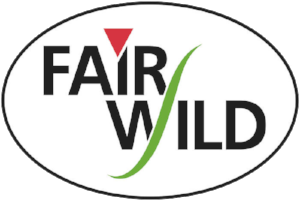Future development of FairWild certification highlighted at UK stakeholders meeting
November 2015 – A lively mix of perspectives and ideas were exchanged at a FairWild workshop last month, where participants from across the value chain met to exchange experiences and work together on priorities for the future development of the FairWild certification system.
The meeting held was co-organised by the FairWild Foundation and TRAFFIC (a FairWild Foundation partner), and hosted by Neal’s Yard Remedies (NYR), a registered FairWild Licensee (manufacturer using FairWild ingredients).
The meeting was hosted by Neal's Yard Remedies in Peacemarsh, Dorset. “We were very happy to host the FairWild meeting at our headquarters and ecofactory in Peacemarsh, Dorset,” said Louise Green, NYR’s Head of Sustainability.
“Our Frankincense supplier in Kenya has been FairWild-certified since 2013. We have been thrilled to see the recognition of FairWild growing among our industry peers, helping us to win a Guardian sustainable business award earlier this year. The workshop was a good opportunity to work with like-minded companies on issues of wild collection, and to work on future plans to introduce the public to FairWild.”
The meeting was chaired by Steven Broad, a FairWild Foundation Board member and Executive Director of TRAFFIC, and focused around four main topics:
FairWild business development – how to expand take-up of the FairWild Standard and certification scheme, increase volume of sustainable ingredients in trade, and resolve key bottlenecks in order to get more sustainable products to market.
Supply – how to support certified wild collection operations, including exploring different modalities and partnerships for capacity building and support. Also discussed was how to ensure traceability in wild collection, how FairWild can reinforce and provide a mechanism for operators to meet quality requirements, and how to use the FairWild premium for social development projects with the collectors and communities.
Certification scheme development – identifying improvements that could be made to ensure audit efficiency, plans for expansion of audit capacity, and refinement of licensing fees and trader registration system.
Communications, public awareness and branding – opportunities to inform the public about wild plants and sustainable sourcing issues through campaigns, as well as the potential to work cross-brand.
Anastasiya Timoshyna, TRAFFIC's Medicinal Plants Programme Leader, said: "We are engaging industry partners in our projects worldwide to support implementation of the FairWild principles. It is useful to hear first-hand about the experience of traders and buyers of FairWild-certified ingredients, as well as to bring our own perspective as a civil society organisation committed to conservation and sustainable development."
“Stakeholder engagement is an important element of the FairWild system, and recognised as good practice across social and environmental standards,” said Bert-Jan Ottens, FairWild Board member for communications and marketing. “It is important to provide opportunities to gain feedback and allow dialogue with the users of the Standard and certification scheme.”
It was the second FairWild workshop to be held in the UK, following an earlier one hosted in 2014 by the Organic Herb Trading Company Ltd.
For more information about FairWild, and to join subsequent meetings and workshops, please contact the FairWild Foundation Secretariat.

